
8 minute read
A Zookeeper’s Diary
A ZOOKEEPERS DIARY
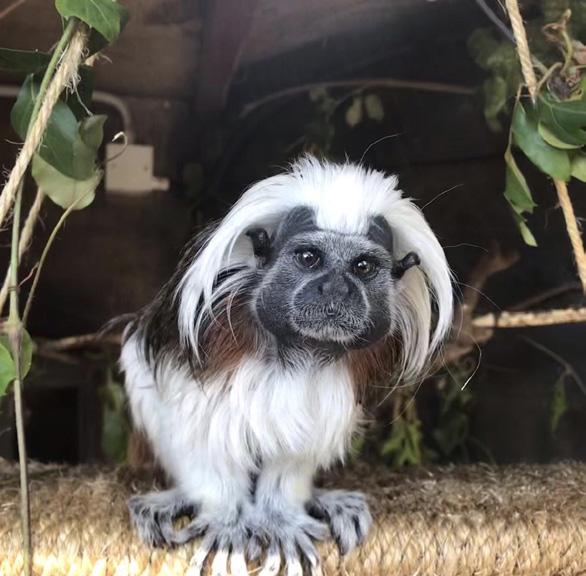
Our monthly spotlight on the superstars at the Alameda Wildlife Conservation Park… and their keepers!
BY JESS LEAPER
On the 12th of March the Alameda Wildlife Conservation Park took the difficult and relatively early decision to close the park to the public due to the COVID-19 outbreak. Lockdown in Gibraltar was still a week away, but with two cruise ships with over 3000 people due in to Gibraltar and a sunny weekend ahead, it was a risk the park management were not willing to take.
The following Monday, all volunteers were asked to stay at home, the Head Keeper was put into 12-week self-isolation due to an underlying health condition and the Manager of the park was exhibiting strongly out of character symptoms compliant with COVID-19 and was advised to self-isolate for 10 days. Suddenly the Park was back to just three core Keepers, something the staff hadn’t experienced for many years, having been blessed with the help of some fantastic Volunteers and Interns.
Over the following week, further protocols were drawn up to ensure the safety of staff and the animals at the AWCP. Information was flooding in from all directions. BIAZA, the British Zoo Association, sent through regular updates on potential risks to animals in zoos and precautionary measures for staff to take, particularly with primates. This was later extended to include bats and mustelids (in the AWCP’s case, the otters). The wearing of masks became obligatory in most animal enclosures, as much for the safety of the animals, as for the staff. Gloves are often worn by the Keepers, as long as they are mindful of the need to change between enclosures and wash their hands when the gloves are removed, however, they have now become a must and supplies were already low.
Over the weeks of lockdown, the Keepers (and, now healthy, manager) have maintained the park and the care of the animals much as before. The workload is high, with just two staff working each day, but they generally feel privileged to be able to escape the confines of their homes into such a beautiful environment and
to spend time with the animals. There is slight angst at the task ahead of them and a certain trepidation that with advice regarding symptoms staff levels could easily further reduce. Unlike many businesses, the Wildlife Park cannot just switch off the lights and close the gates, the animals still need to be fed and cared for every day.
The AWCP Keepers have strived to keep the routines for the animals as close to normal as possible. With just two keepers on at any time, this is pretty intensive work! Between 9am and 11am, all the animals will be checked, fed and cleaned. “Much of the animal training has ceased for now, for safety reasons, other than for obtaining weights of the animals which is important for the records and to ensure the animals are healthy. Enrichment for the animals to keep them entertained, is as important as ever, if not more so.” Says Nic Campbell, the Primate Keeper and stand-in Senior Keeper. 12 6 39 210 111 57 48
But do the animals notice the changes? “I think they do notice the lack of visitors and some animals do miss the interaction with visitors. For some animals, it may not make much difference. Jumbo our Blue and Yellow Macaw is like a feathered toddler, he requires a lot of attention. We find ourselves talking to him throughout the day, just to keep him entertained. The rabbits also seem very affectionate, perhaps they’re missing all the strokes and attention from the public too.” A much needed break for the Keepers and also a time to catch up.
The records for the animals are being updated by the AWCP Head Keeper, Steve Bryant, as he ‘very reluctantly’ self-isolates from home. Staff will send over snapshots of the Keeper diary containing all the important updates on the animals. Steve also joins in with the regular full-team video calls which help keep all staff up to speed and also gives the opportunity to get advice or direction when required. 12 6 39 210 111 57 48
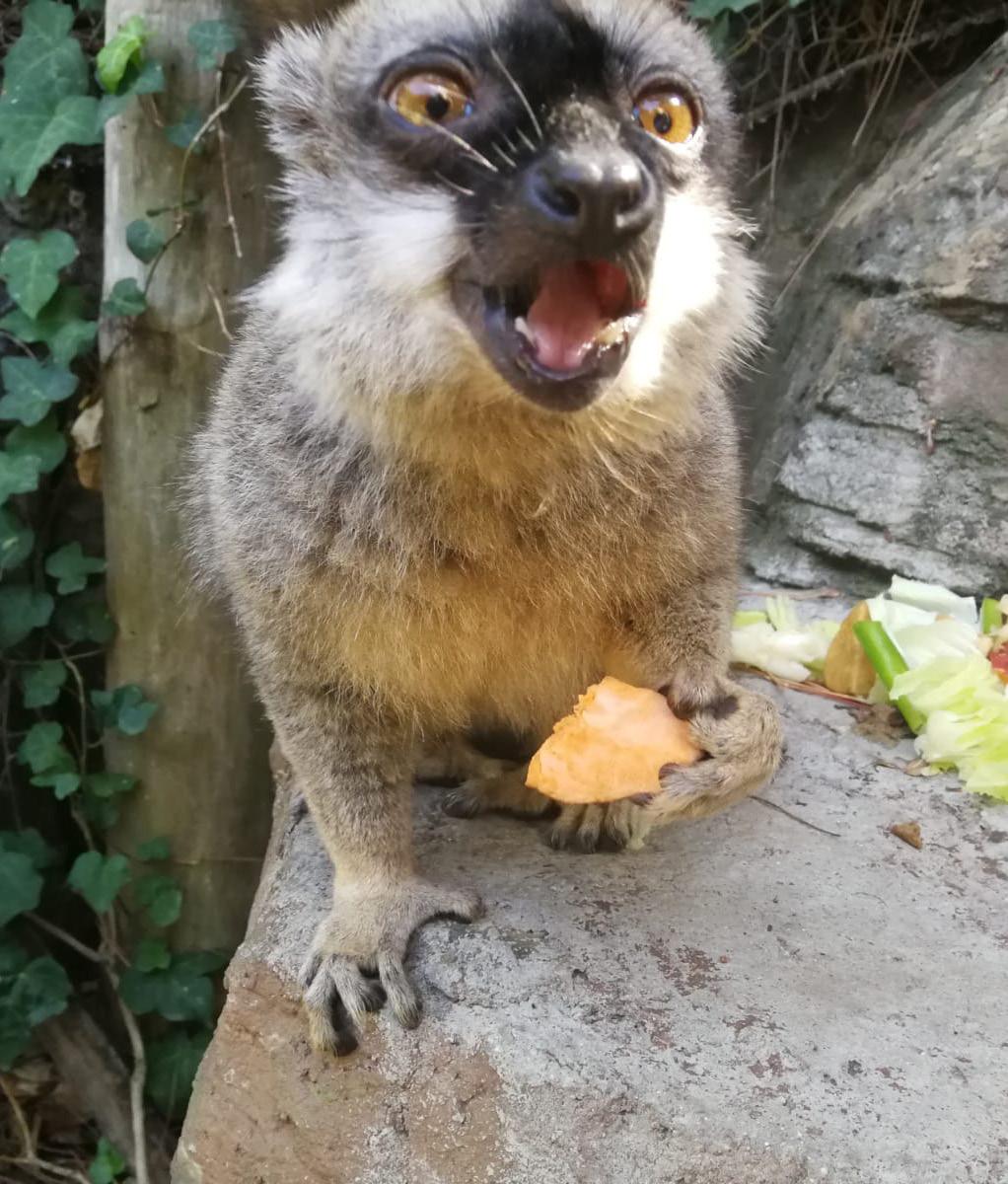
time, the Botanic Gardens offered the assistance of some of their staff. Training new staff on the animal care routines at this time would be time consuming for the staff and it would also contradict the social distancing rules, so the Botanic Gardens staff have been helping out in the kitchen area, preparing the food for the animals. This has been a fantastic help for the Keepers, giving them more time to spend with the animals in the park. Alex Iglesias, a full-time gardener, and Albert Gonzales, an Information Technician, have been at the AWCP working for a couple of hours each day, chopping the fresh vegetables and fruits for the animals. Albert even turned up on Good Friday to help out
with the preparations for the long weekend, showing dedication to the task, but also it helps him to cope with the lockdown by providing a change of scene over the long weekend.
Some of the animals will be fed again after lunch, once the staff have re-fuelled. If all goes well, this is an ideal opportunity for the keepers to work on enrichment and also to get some video footage of the animals ‘doing their thing’. During lockdown, social media has been widely used to bring the zoo to the public - virtually. Many of the Park’s regular visitors are missing the animals and are keen to know how they are getting on. The AWCP has been posting regular updates on the animals and video footage, as well as responding to requests from the public to see their favourite animals and even tour behind the scenes of their enclosures. The response has been amazing. Social media has become the primary communication medium for many during the lockdown, be it keeping in touch with family and friends or for entertainment throughout the long days. Seeing footage of animals going about their business in zoos and in nature provides a positive feel-good factor for people stuck at home during lockdown. 12 6 39 210 111 57 48
Springtime is the peak education season for the AWCP, when the Wildlife Park welcomes Gibraltar’s schools to visit the animals and learn about species and habitats. Sadly, all the bookings had to be cancelled and only a few lucky schools had managed to visit before the lockdown. With the
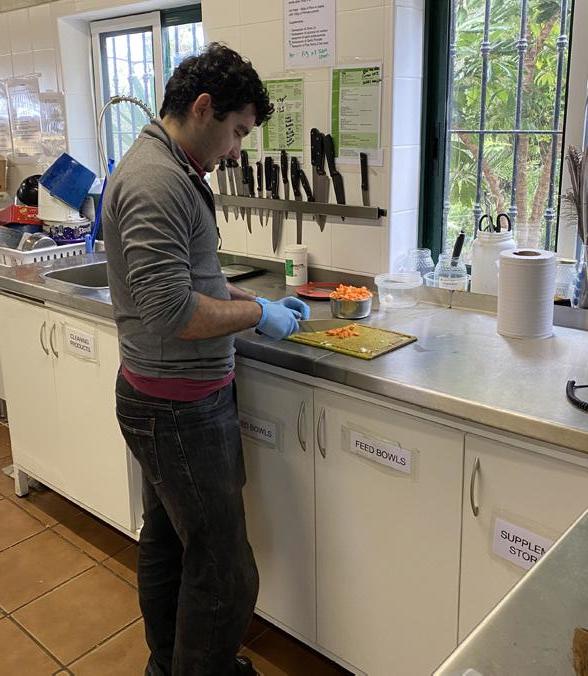
launch of the ‘Habits for Habitats’ campaign at the AWCP last year, the staff were looking forward to teaching the children more about how they can help save habitats and species all over the world, just by changing a few of their daily habits. The AWCP’s Habits for Habitat campaign is more relevant than ever. Manager Jess
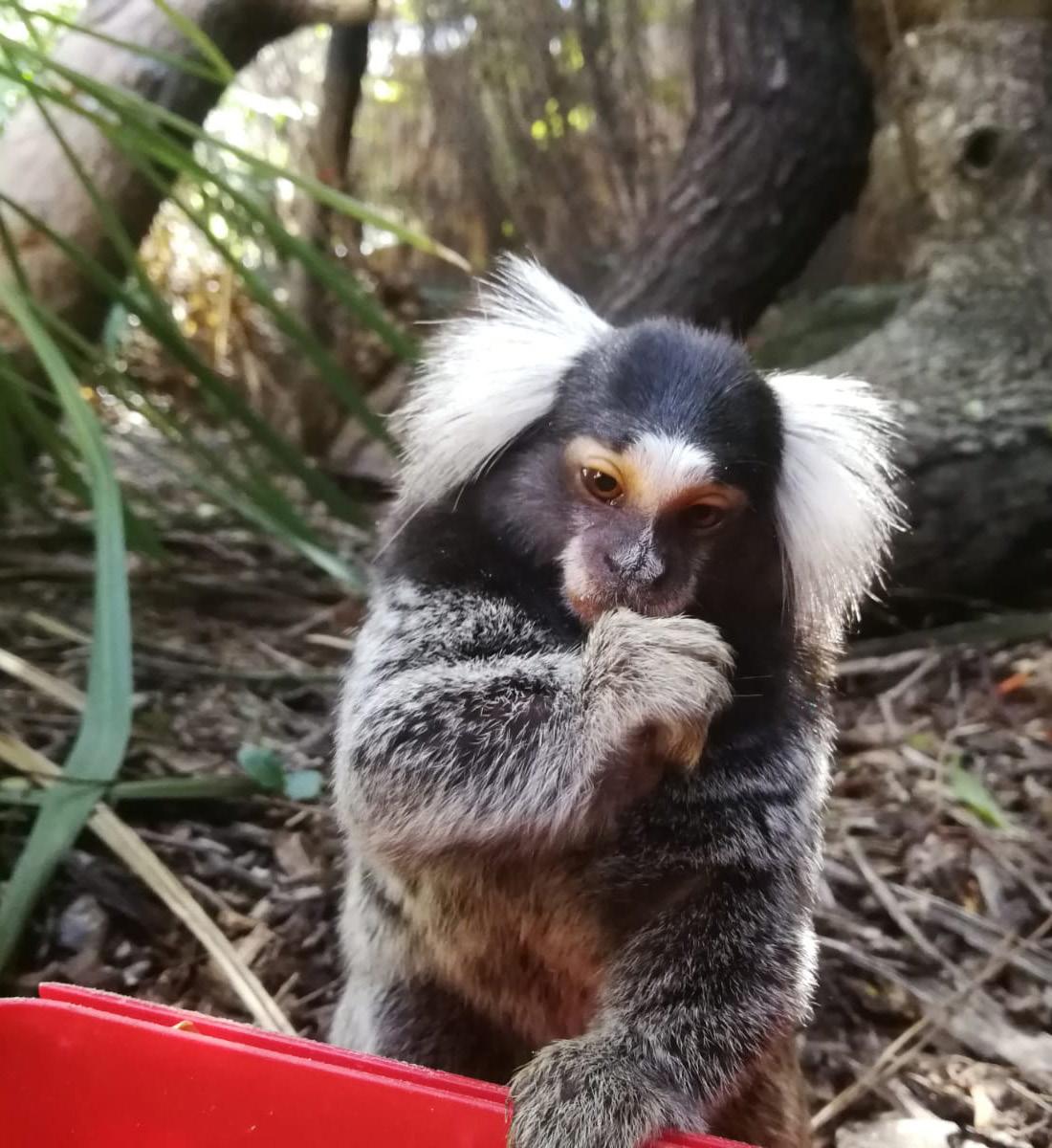
Leaper explains: “There are consequences to all our daily habits: what we eat, where it comes from, how it is made, how far did it travel, how was it packaged, how ethical was its production? These are all things we all need to consider if we are to make a difference to the future of the planet. We need to take action now and use this opportunity to create a new normality. The pandemic is not just a human tragedy, far removed from nature, it is integrally related to the natural world and our direct exploitation of habitats and species the world over, much of this is driven by the economy, inequality and poverty. More importance has to be placed on wildlife and nature, for the good of the planet and all the species
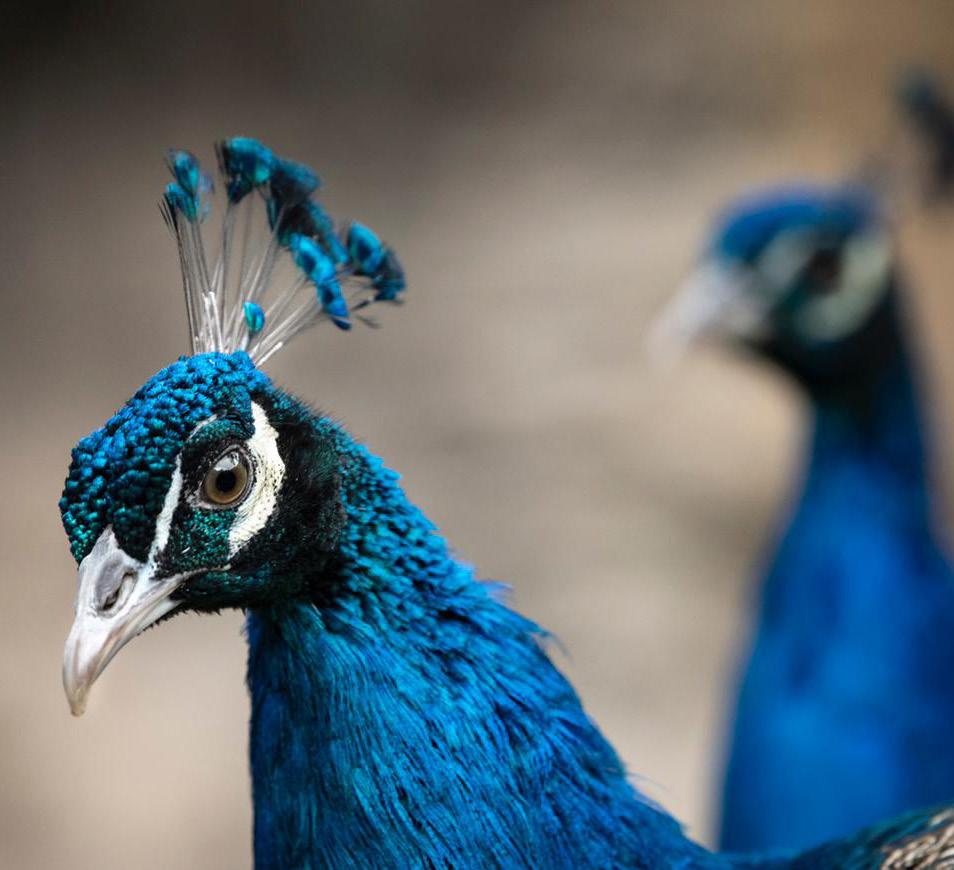
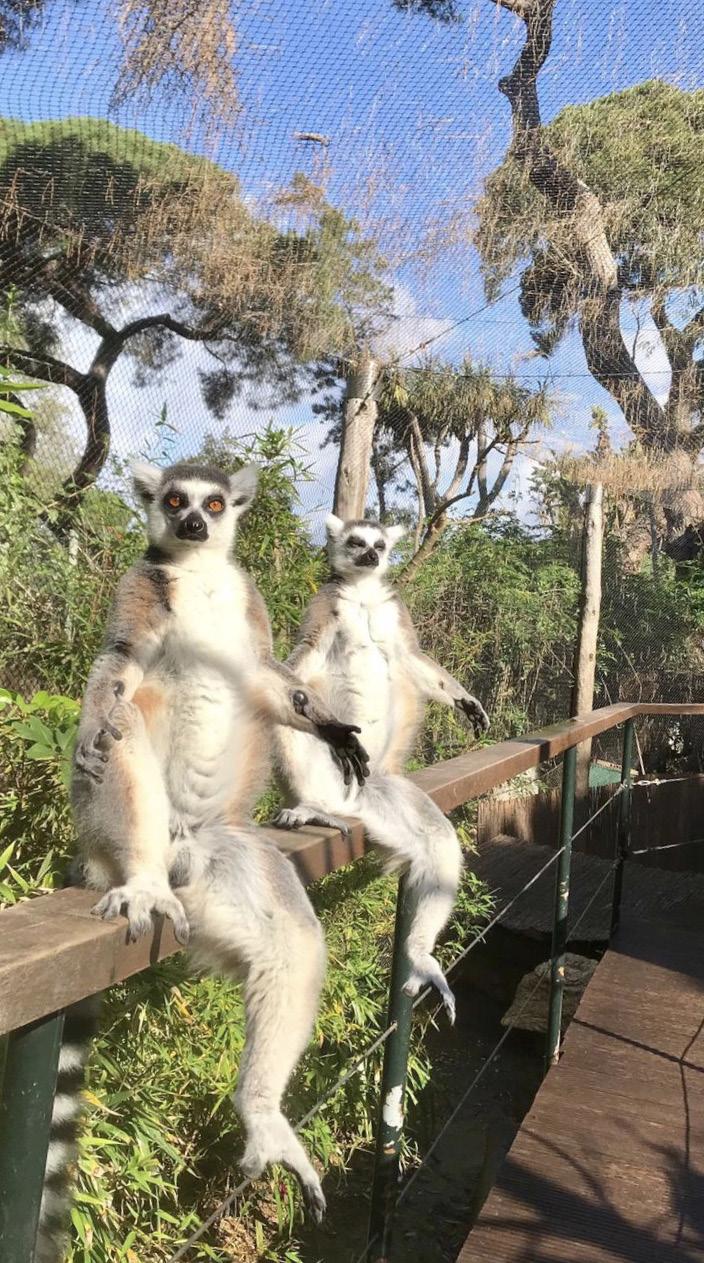
we share it with”.
During the lockdown, the AWCP have developed a special ‘Homeschooling’ area on their website, where parents can download activities and worksheets on various subjects related to animals at the park. To access, visit www.awcp/education.gi
In order to follow social distancing guidelines, the staff at the AWCP have tried to reduce their hours as much as possible. The routine is made slightly easier with the absence of visitors, but with a plethora of tasks 12 6 39 210 111 57 48
to complete, the days pass all too quickly. At the end of the day, all the animals are checked once again and given their last feed of the day. It’s a calm and quiet time when all the animals are well fed and peaceful and the staff can relax and head off home.
The lockdown has taught us that we are resilient and we can cope with changes to our habits. As frustrating as some of these changes may be, many of these alterations have brought about positive changes in nature; the lockdown has given the earth a chance to breathe. Pollution levels the world over are down, wildlife is moving back into deserted villages and towns, animals are enjoying the peace from the relentless hustle and bustle of human life on earth. Perhaps this is the ideal time to think about how we move forwards from here and to use the time we have to assess how we do things and why, and to look at what habits we can change for the better to create a new ‘normal’ that respects and includes. The AWCP is more determined than ever to continue to promote wildlife and the need to save habitats and species, continuing its important role: to provide visitors with a window to conservation projects and wildlife around the world.
For more information on the AWCP visit: www.awcp.gi or find us on Facebook, Instagram & Twitter.










